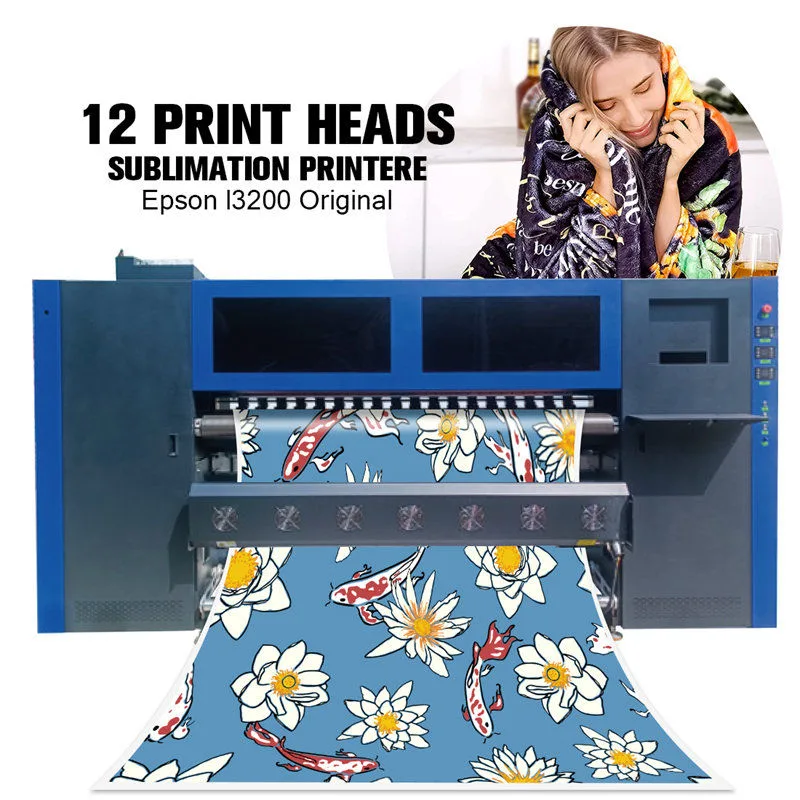Sublimation printing is a popular and versatile method for achieving high-quality printing on a wide variety of products (clothing, mugs, hats, etc.).
Whether you’re expanding your business or starting a new business, choosing the right sublimation printer for your needs is essential to success. In this guide, we’ll go over important factors to think about when selecting the best sublimation printer for your business.
Knowing your business needs is the first step in choosing the best sublimation printer. Do you need to efficiently create huge quantities, or are you primarily focused on printing short runs for customized products? The volume of your print jobs, the types of products you plan to offer, and the desired print quality will all influence your decision.
For instance, you will need to get a versatile printer that can handle a range of sizes and materials if you plan to print on diverse substrates, such as shirts, mugs, and other promotional goods.
Sublimation printers come in a variety of sizes, from small desktop models to large-format industrial machines. For small businesses or home-based operations, a compact, desktop printer may be sufficient. Generally, they are simpler to operate, less expensive, and require less space than their larger cousins.
However, if your printing needs are for large-sized items like banners or textiles, or require a high output volume, then you’ll need a much larger printer that can take wider sizes of media and print the items faster.

Print quality is a critical factor in sublimation printing. The resolution of your printer will determine how sharp and detailed your prints will look. Be sure to look for a printer offering high DPI (dots per inch) resolution, normally 1440 x 1440 DPI or even higher for professional-grade prints.
If your business specializes in intricate designs, fine details, or high-end products, you’ll want to prioritize a printer that delivers exceptional color accuracy and sharpness.
Sublimation printers use special types of sublimation inks, and not all printers are compatible with the same ink type. When choosing a printer, consider the availability and cost of the sublimation ink cartridges.
Some printers come with proprietary ink systems, while others offer third-party ink options that can help reduce costs. While third-party ink may appear to be a cost-saving strategy, it’s best to make sure it’s compatible with your printer and is of good quality as poor-quality ink can impact print fidelity, color accuracy, and durability.
Consider the type of printer that will work easily with your design software and the type of connectivity that fits your business needs. Most sublimation printers use a USB or Wi-Fi connection, though some have advanced options such as Ethernet or Bluetooth.
Also, check the printer’s compatibility with popular graphic design and color management software, such as Adobe Illustrator or CorelDRAW. A printer that can easily integrate with your current design workflow will save time and make your production process smoother.
Buying a sublimation printer is a considerable investment, and after-sales support, warranty coverage, and the availability of spare parts become relevant. A reliable warranty will provide peace of mind, especially in the case of technical issues. Most reputable manufacturers, such as Baiyin, will offer a warranty for a certain period of time.
Look for a printer brand that offers excellent customer support, troubleshooting resources, and maintenance guides. Some companies also offer extended warranty packages or service contracts, which can be beneficial if you’re running a high-volume operation.
Although it could be alluring to select the least expensive sublimation printer, keep in mind that this is just one factor to take into account. In addition to the printer itself, you will need to supply consumables including heat press equipment, transfer paper, and sublimation ink.
Investing in a premium printer that is reliable and low-maintenance can really save money in the long run for businesses that are aiming for long-term profitability.
The best sublimation printer for your business depends on your production needs, print quality requirements, ink costs, and available space. By evaluating these key criteria, you can select a printer that not only meets your current business demands but also helps you scale your operations as your business grows.